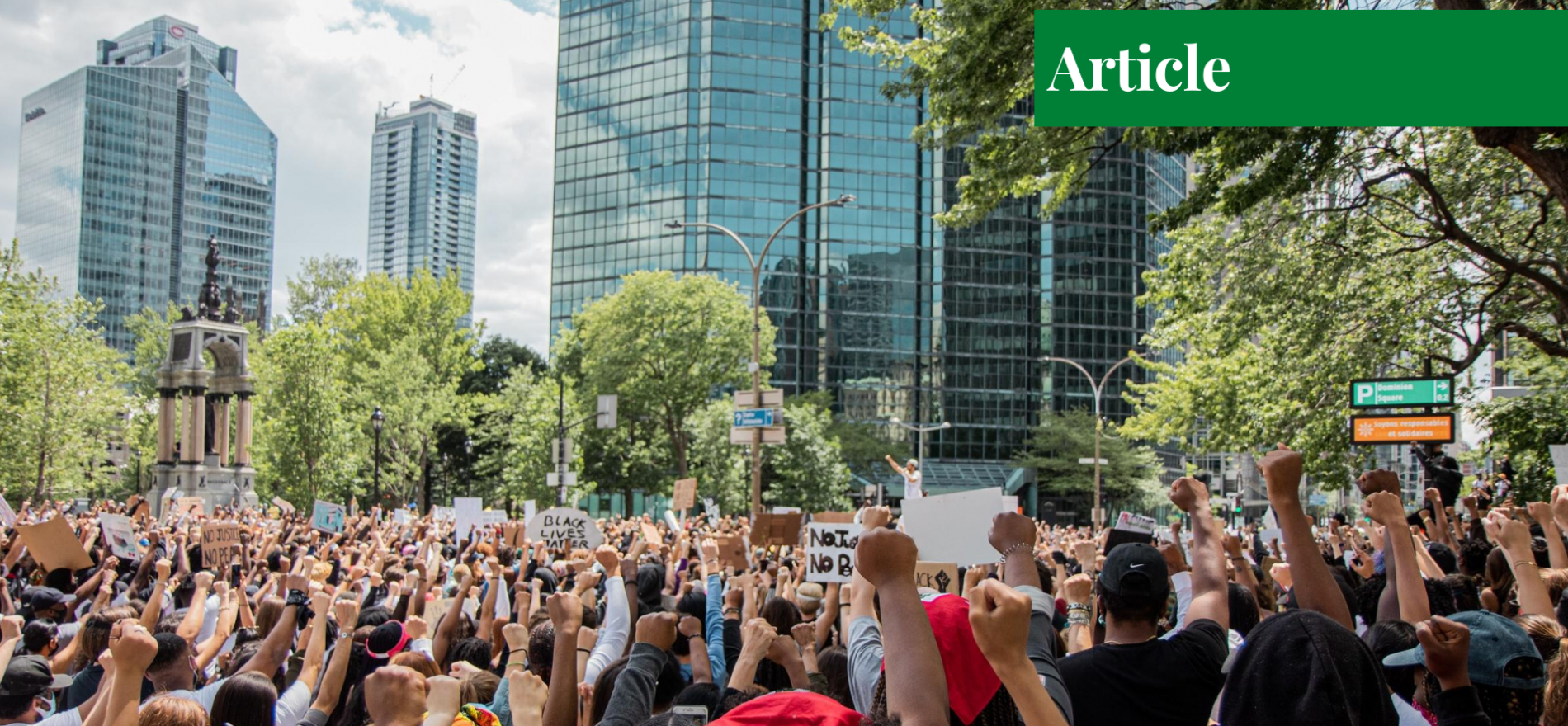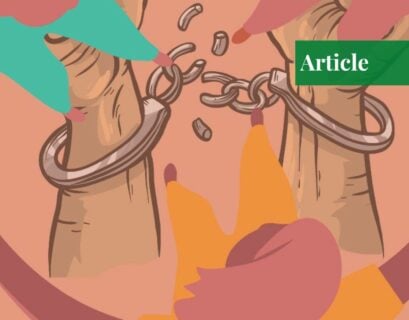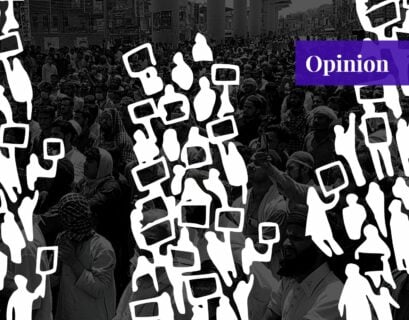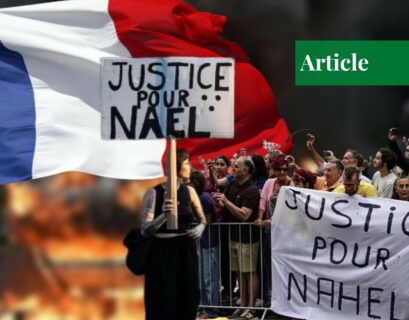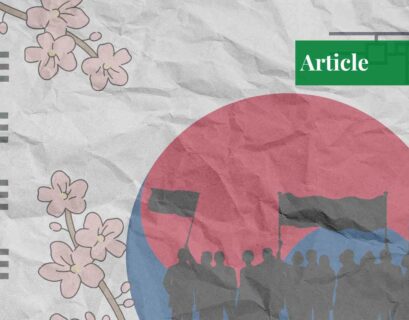Sijel Khan is a contributor for Paradigm Shift.
Introduction
The murder of George Floyd has caused a mix of moral indignation, virtue-signalling across social media, and protests morphing into movements across the United States, the U.K, Canada, and the European Union. Meanwhile, political theatrics have ensued as the U.S. legislature appears bent on empathizing and recognizing the structural racism, cognitive dissonance, and willful ignorance of the issue. Prior to George Floyd’s murder, there was Sandra Bland, Breonna Taylor, Stephan Clark, Botham Jean, and Philando Castillo, among others. As far as names go, there is no shortage of U.S. citizens murdered in U.S. police custody.
While the U.S. remains one of the most technologically advanced countries in the world, it has failed to apply these technological advancements across policing. For a country that produces the most advanced microchips with military expenditure dwarfing 80% of the world, it seems incapable to design body cams to address police brutality and root out racist police officers that terrorize rather than protect its citizens. The last decade has seen anti-police sentiment spike as racial profiling and dehumanizing practices have become increasingly accepted across the United States.
Humanity, not technology should address the issue of police brutality, but micro-worlds facilitated by surveillance capitalism and cognitive bias suggest that other methods to stem the issue must be sought. Tah Nehisis Coates discussed the notion of “Blackness” in his best-seller “Between the World and Me”, where a defensive and astute morality must underpin the black person if he is to survive in society. His book credibly reflects modern-day America, one ridden with biases that have come to form the basis of socio-economic policy. In order to subjugate people, one must first make them desperate enough to renege their true values.

Amongst others, the lessons from the book ring hollow in a country where Jim Crow laws have ensured sustained economic inequality to persist, while racial bias has increased the challenge for African Americans who attempt to thrive amidst the injustice. But violence and economic opportunity are increasingly linked in the context of a slave-built America. By creating “the projects” to house economically disadvantaged people and allowing states to dictate housing and education policies that have a disproportionate impact on ethnic minorities, it is now clear that crime is the result of policy inertia, poor education, and the lack of economic opportunity.
The Entrenched Chasms
As the educational imbalance has grown following years of mistreatment and gerrymandering, law enforcement has embraced the dehumanization of its African citizens. The placards from the protest distinctly illustrate the slogans, words, and emotions that capture the issue of police brutality. As millions of people brave the streets in spite of the coronavirus, it is now clear that freedom, the foundation of Western liberal democracies, has survived government-imposed lockdowns. But whilst legislation will begin addressing these structurally-rooted inequities in U.S. society, it is more challenging to change the concept of equality amongst people whose problems have come to characterize their existence of the white working class.
From falling wages, inequality, and deindustrialization, there is no shortage of issues facing the U.S. working class, which makes calls of injustice harder to comprehend. Amidst these issues, it is difficult to explain white privilege, which is increasingly protested in all parts of society in the West. The moral reprehension from the protests has caused the U.S. elite to deliberate its laws and change them to reflect the concerns of society. However, by outlawing chokeholds, does one address police brutality? This is a question that is hardly addressed by protests and reactive regulation.
The End of History, as pointed out by Francis Fukuyama ushered in an era of equality, freedom, and democracy and the defeat of communism. But if liberalism won against communism, the subjugation of the state has never been clearer in the United States. If its citizens can’t live freely without fear of death at the hands of law enforcement agencies, the oppression once conferred to communism begins to ring hollow. Admittedly, civil liberties, universal suffrage, civil liberties, a free press, and an independent judiciary are the tenets of modern liberal democracies, but the laws, rather than protect and ensure the freedoms of its citizens, have turned oppressive, reflecting the underlying racial undertones of American society.

Fortunately, the end of history, as forecasted by Francis, has not proven true; had this been the case, police brutality and tech-driven bias would have further enslaved African Americans and ethnic minorities. The length and persistence of the George Floyd protests are evidence of this. The solidarity occasioned by the protests is notable; the black community has not only had to contend with racial injustice and biased legislation, but it has also proven that the “all lives matter” movement was an attempt to quell the issues facing the African American community.
The Need for Revolutionary Protests
From racial housing and economic policies, to board room and hiring decisions that are disproportionately in favour of Caucasians, the protests are seeking to undermine a system that has benefited the educated and industrious class, to the detriment of others that have not always enjoyed the spoils of society. In order to redress this imbalance, the political and national consciousness will need to fully reassess the extent to which values have underpinned human and institutional decision making. The New York City Police Department (NYPD) has failed to punish officers with priors and has equally failed to disclose a database that could enable better policing and racially-neutral policies for arrest.
It is important to note that New York is deemed a liberal haven, comprising educated students, hipster artists of all heritages, and a melting point of citizens from all walks of life. Even so, the police force does not reflect the people it serves and continues to terrorize the citizens they are required to protect. It might seem demanding to ask for body cams that record every police arrest to be legislated into law, but the protests are increasingly driven by a need for change, equality, and justice. George Floyd is an unfortunate trigger for broader equality that must be sought in a manner consistent with the progress society has seen in the last decades.
Protests can be effective if the protesters know what they want. But beyond chanting on the streets, citizens likely intend to vote in a manner that reflects social injustice. The coming elections will show how years of injustice can galvanize change, but while the protesters are likely liberal voters, a new underclass will seek to take control of what they see as a process and project that disproportionately targets them.
America’s decline is nothing more than the sum of the morals of its citizens; by failing to champion equality and justice at home, support for a liberal model of the world could equally be found wanting. The George Floyd protests are nothing more than another litmus tests for American society, driven by different realities amongst its voters and a feeling of disenfranchisement among the working class that sees protests against police brutality as superfluous.
The George Floyd protests have achieved a few things: from banning chokeholds to raising the issue of police brutality in the national and global consciousness. However, the effectiveness of protests must accompany quantifiable demands that not only address an unfortunate outcome but years of policy inertia and simmering racisms across the United States and its institutions that champion liberal democracy across the world.
If you want to submit your articles and/or research papers, please check the Submissions page.
